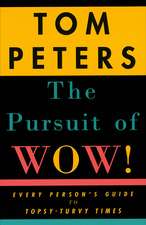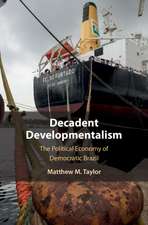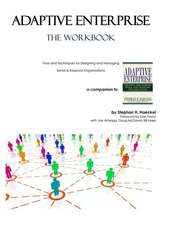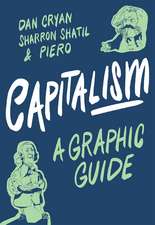Capitalism 4.0: The Birth of a New Economy
Autor Anatole Kaletskyen Limba Engleză Paperback – 19 iun 2011
Tracing the development of capitalism from the late eighteenth century through three distinct historical phases, Kaletsky shows how at each of these transitions the existing economic order appeared to be fatally threatened, only for capitalism to reinvent itself and emerge stronger than before. The turning point for our most recent age of capitalism came on 15 September 2008 when Lehman Brothers collapsed, setting off market chaos which, had it not been for government bailouts and guarantees, would have toppled every bank in the Western world, an incident which set off the fourth major systemic transformation in capitalism's history - Capitalism 4.0.
Understanding Capitalism 4.0 will be critical to the continued recovery of our global economies. In this controversial and wide-ranging book, Anatole Kaletsky, one of the world's foremost economic commentators, puts recent financial events into historical and ideological perspective. He describes the emerging features of this new capitalist model, explains how it differs from the previous versions - and how it will change politics, finance, international relations and economic thinking in the next decade.
| Toate formatele și edițiile | Preț | Express |
|---|---|---|
| Paperback (2) | 63.30 lei 22-36 zile | |
| Bloomsbury Publishing – 19 iun 2011 | 63.30 lei 22-36 zile | |
| PublicAffairs – 27 iun 2011 | 146.66 lei 22-36 zile |
Preț: 63.30 lei
Preț vechi: 82.80 lei
-24% Nou
Puncte Express: 95
Preț estimativ în valută:
12.11€ • 12.68$ • 10.08£
12.11€ • 12.68$ • 10.08£
Carte disponibilă
Livrare economică 10-24 martie
Preluare comenzi: 021 569.72.76
Specificații
ISBN-13: 9781408809730
ISBN-10: 1408809737
Pagini: 448
Ilustrații: Illustrations
Dimensiuni: 129 x 198 x 25 mm
Greutate: 0.31 kg
Editura: Bloomsbury Publishing
Colecția Bloomsbury Paperbacks
Locul publicării:London, United Kingdom
ISBN-10: 1408809737
Pagini: 448
Ilustrații: Illustrations
Dimensiuni: 129 x 198 x 25 mm
Greutate: 0.31 kg
Editura: Bloomsbury Publishing
Colecția Bloomsbury Paperbacks
Locul publicării:London, United Kingdom
Caracteristici
Anatole Kaletsky was Newspaper Commentator of the Year in BBC Press Awards and has twice received the British Press Award for Specialist Writer of the Year, as well as the Wincott Award for economic journalism and the first Cernobbio-Europe prize for European Journalist of the Year
Notă biografică
Anatole Kaletsky is Editor-at-Large of The Times, where he previously served as the Economics Editor and Associate Editor. Kaletsky began his career in journalism writing about business and finance for the Economist, and for twelve years worked at the Financial Times, where he served as New York Bureau Chief, Washington Correspondent, International Economics editor and Moscow Correspondent. He is a founding partner of GaveKal Capital, a Hong Kong-based financial boutique. He lives in London.
Recenzii
'Anatole Kaletsky is a brilliant economist and a gifted writer, a combination as valuable as it is unusual. Capitalism 4.0 will add greatly to our understanding of the future of global finance'
'Anatole Kaletsky is one of the handful of heavyweight UK commentators who set the tone of public discourse on economic policy. His book goes well beyond typical comment to give an insightful analysis of the recent financial crash in a broad historical context'
'Idiosyncratic, entertaining and contrarian'
'A hugely ambitious and controversial account of the credit crunch which brilliantly traces the hotchpotch of economic theories that underpins it, and convincingly explains how it came to go so catastrophically wrong ... Kalestsky offers a genuinely new take on the credit crunch'
'Anatole Kaletsky is one of the handful of heavyweight UK commentators who set the tone of public discourse on economic policy. His book goes well beyond typical comment to give an insightful analysis of the recent financial crash in a broad historical context'
'Idiosyncratic, entertaining and contrarian'
'A hugely ambitious and controversial account of the credit crunch which brilliantly traces the hotchpotch of economic theories that underpins it, and convincingly explains how it came to go so catastrophically wrong ... Kalestsky offers a genuinely new take on the credit crunch'
Descriere
The definitive book about the state of Capitalism; now and in the future, that debunks myths and presents groundbreaking new theories






















